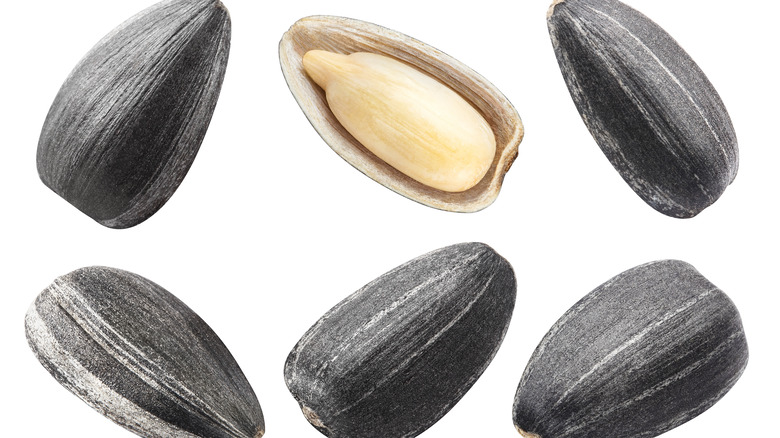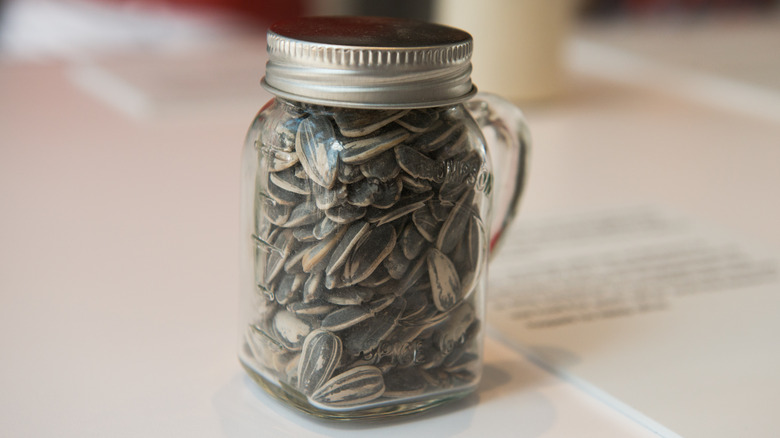Can You Actually Eat Sunflower Seed Shells?
Everyone has a favorite snack food, and they all have their merits and downsides. Beef jerky is delicious but you almost always need to make sure you've got water on hand for the aftereffects of all that salt. Granola bars can be good but sometimes they're so sugary, and candy can be a little too sweet. Sunflower seeds are an awesome snack option: they're filled with natural and healthy fats, plus some protein, and they come in all sorts of fun flavors. They're great for road trips because they're difficult to eat a lot of all at once.
The one downside of sunflower seeds is the shells. Spitting them out can be super inconvenient, not to mention messy and a little gross sometimes. While we all chew up the shells and spit them out, keeping only the seeds to eat, is there a reason why we aren't eating the shells? Could we, and should we, eat them?
Alas, you can't eat sunflower seed shells
As it turns out spitting out the shells is pretty much the only way to eat sunflower seeds, unless you're buying them shelled, in which case, full steam ahead. This favorite baseball-time snack, unfortunately, needs to be eaten the way it's always been eaten: biting through the fibrous shells, also called hulls, to get to the kernel inside.
According to Healthline, we can't eat the shells because they're chock-full of the undigestible fibers known as cellulose and lignin. Swallowing a few pieces of the shell isn't harmful, but consuming a large amount could result in a potentially dangerous intestinal blockage. This isn't limited to sunflower seeds. When you consume the shells of edible seeds in general, the shell bits can build up in your intestines, creating what's called a bezoar. This buildup can lead to pain, constipation, or even impacted bowels, the last of which comes with such complications as hemorrhoids or intestinal tearing. So, as tempting as it might be to forgo the chewing and spitting of the shells, it's something that's done for good reason.

